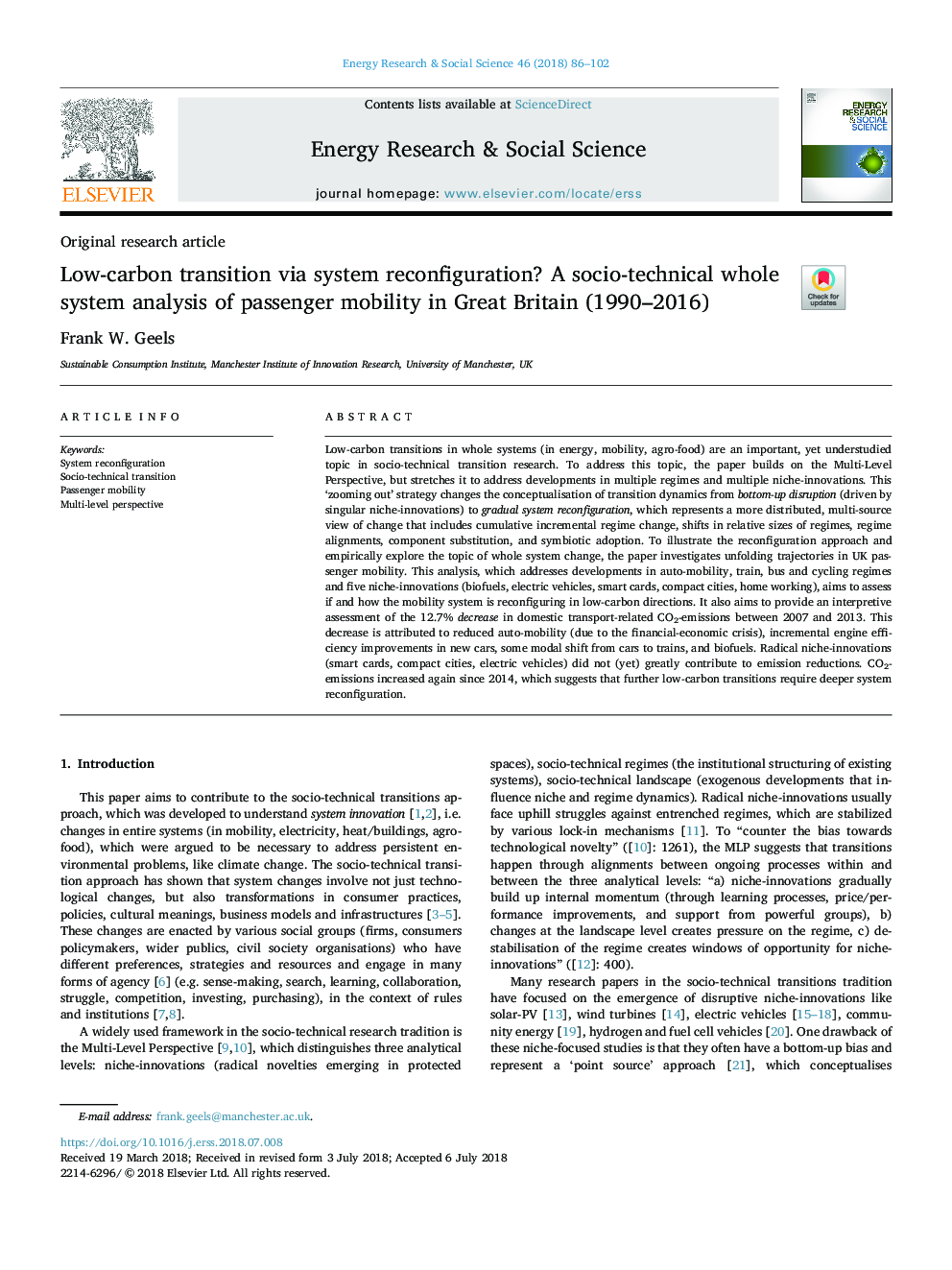| کد مقاله | کد نشریه | سال انتشار | مقاله انگلیسی | نسخه تمام متن |
|---|---|---|---|---|
| 6557114 | 1422557 | 2018 | 17 صفحه PDF | دانلود رایگان |
عنوان انگلیسی مقاله ISI
Low-carbon transition via system reconfiguration? A socio-technical whole system analysis of passenger mobility in Great Britain (1990-2016)
ترجمه فارسی عنوان
انتقال از طریق کربن کم از طریق تنظیم مجدد سیستم؟ تجزیه و تحلیل کل سیستم اجتماعی و فن آوری حمل و نقل مسافر در بریتانیا (1990-2016)
دانلود مقاله + سفارش ترجمه
دانلود مقاله ISI انگلیسی
رایگان برای ایرانیان
کلمات کلیدی
تنظیم مجدد سیستم، انتقال اجتماعی و فنی، تحرک مسافرتی، چشم انداز چند مرحله ای،
موضوعات مرتبط
مهندسی و علوم پایه
مهندسی انرژی
انرژی (عمومی)
چکیده انگلیسی
Low-carbon transitions in whole systems (in energy, mobility, agro-food) are an important, yet understudied topic in socio-technical transition research. To address this topic, the paper builds on the Multi-Level Perspective, but stretches it to address developments in multiple regimes and multiple niche-innovations. This 'zooming out' strategy changes the conceptualisation of transition dynamics from bottom-up disruption (driven by singular niche-innovations) to gradual system reconfiguration, which represents a more distributed, multi-source view of change that includes cumulative incremental regime change, shifts in relative sizes of regimes, regime alignments, component substitution, and symbiotic adoption. To illustrate the reconfiguration approach and empirically explore the topic of whole system change, the paper investigates unfolding trajectories in UK passenger mobility. This analysis, which addresses developments in auto-mobility, train, bus and cycling regimes and five niche-innovations (biofuels, electric vehicles, smart cards, compact cities, home working), aims to assess if and how the mobility system is reconfiguring in low-carbon directions. It also aims to provide an interpretive assessment of the 12.7% decrease in domestic transport-related CO2-emissions between 2007 and 2013. This decrease is attributed to reduced auto-mobility (due to the financial-economic crisis), incremental engine efficiency improvements in new cars, some modal shift from cars to trains, and biofuels. Radical niche-innovations (smart cards, compact cities, electric vehicles) did not (yet) greatly contribute to emission reductions. CO2-emissions increased again since 2014, which suggests that further low-carbon transitions require deeper system reconfiguration.
ناشر
Database: Elsevier - ScienceDirect (ساینس دایرکت)
Journal: Energy Research & Social Science - Volume 46, December 2018, Pages 86-102
Journal: Energy Research & Social Science - Volume 46, December 2018, Pages 86-102
نویسندگان
Frank W. Geels,
